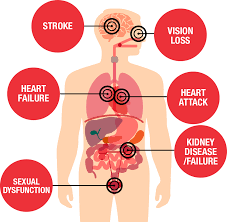
A heart transplant is the replacement of the person’s diseased heart with a donor’s healthy heart. The donor generally is the person who has died and whose family has agreed to donate their loved one’s organs.

Herat disease in many people is preventable and treatable with lifestyle changes medication and devices. However for some patients despite all the efforts to treat and reverse the effects of heart disease, heart function worsens, making heart transplantation the best option available. Heart failure occurs when the heart cannot provide adequate blood flow to sustain the body organs, and heart failure is the far most common reason for any individual needing heart transplant. There are other reasons:
Potential Complication after the Heart Transplant
Complications can occur after the surgery, but special complications are associated with transplantation. Your doctor who has done the surgery has many years of experience in recognizing complications and we are aware of most things that can happen. We know how to prevent the complication and how to treat them when they occur. Your main aim is the checking your health, subsequently a healthy lifestyle and taking medications all which is very significant. Some potential complication after the heart transplant include:
Unfortunately, new heart, is a foreign and your immune system treats it the same as it would a bacteria or a virus. A negative response in your body’s attempt to protect you by attacking a strange protein that has entered your body.

Currently, the only way to diagnose the rejection is by heart biopsy. A routine biopsy is ordered by the transplant cardiologist.
You may have a reduced ability to fight off an infection the way you used to have.

However, you can minimize this infection by restricting contact to infection, being aware of the symptoms and seeking treatment immediately.
Graft coronary artery disease which causes blockage of the heart is the leading cause of death after the first year of a heart transplant. You can help prevent this condition by taking your regular medication and heart health practices. This includes controlling blood pressure and weight, maintaining a low-cholesterol diet and doing the necessary exercise.
If you are patients of a high blood pressure before the transplant, you may have it afterward due to anti-rejection medication.

Read More:- https://blog.docopd.com/category/heart-surgery
Fortunately, there is a variety of medication available that can help you to control your high blood pressure condition.
Diabetes can be a side effect of some of the new anti-rejection medications. Everyone’s blood sugar is different and sometimes also unpredictable. Especially this is true with heart failure. The disease progression and medication used to treat the disease can cause blood sugar to run higher or lower than usual.
A heart transplant is a life-saving procedure that offers hope and a second chance at life to individuals battling severe heart conditions. By understanding the process, risks, and benefits associated with heart transplants, patients and their families can make informed decisions and embark on this transformative journey with confidence.
Best Heart packages Information visit here :- https://www.docopd.com/en-in/lab